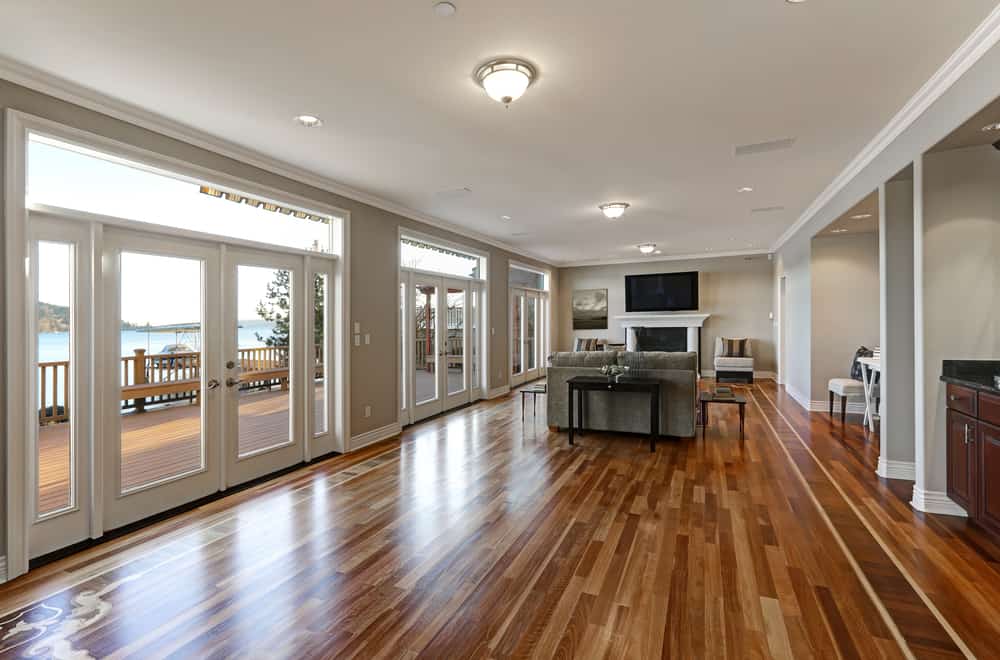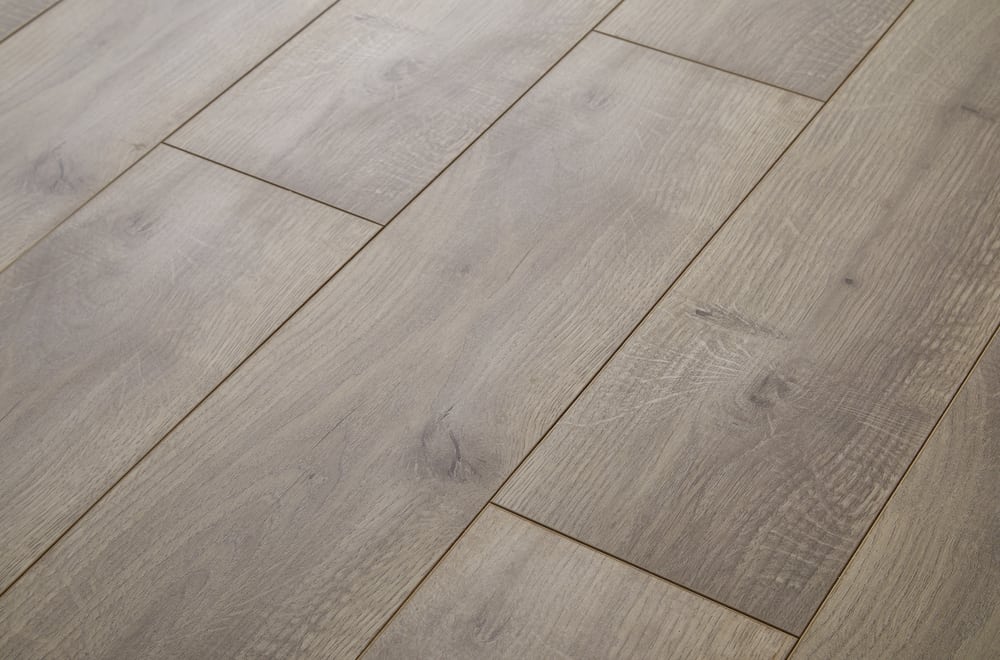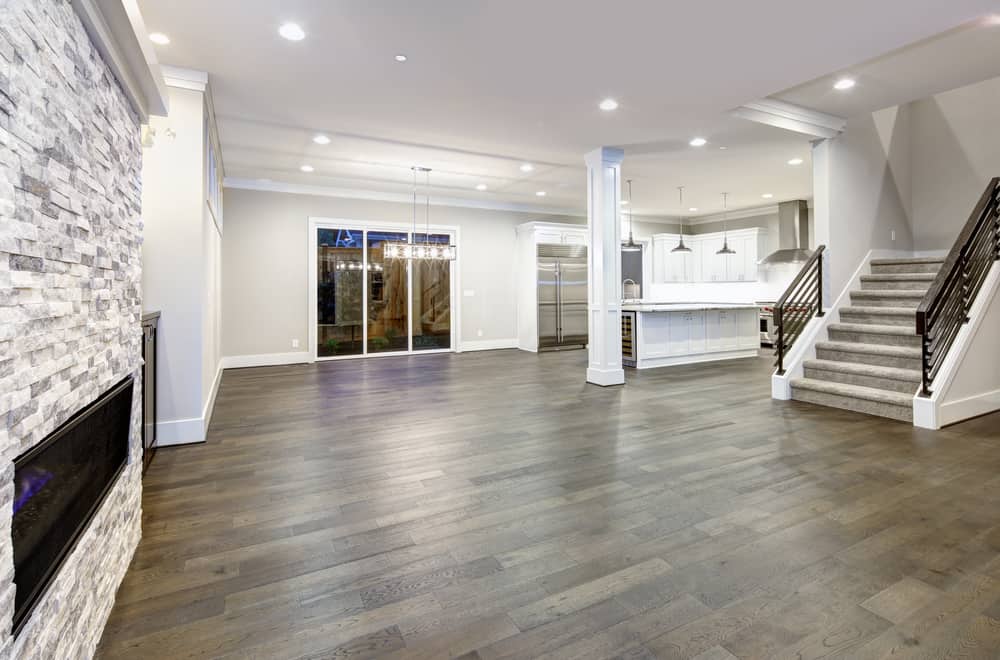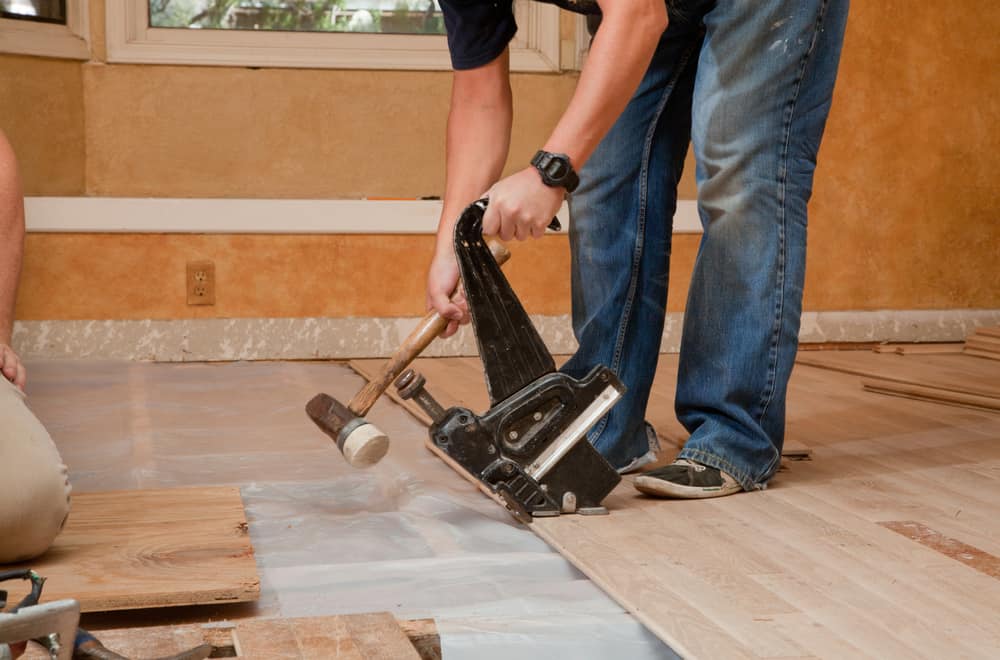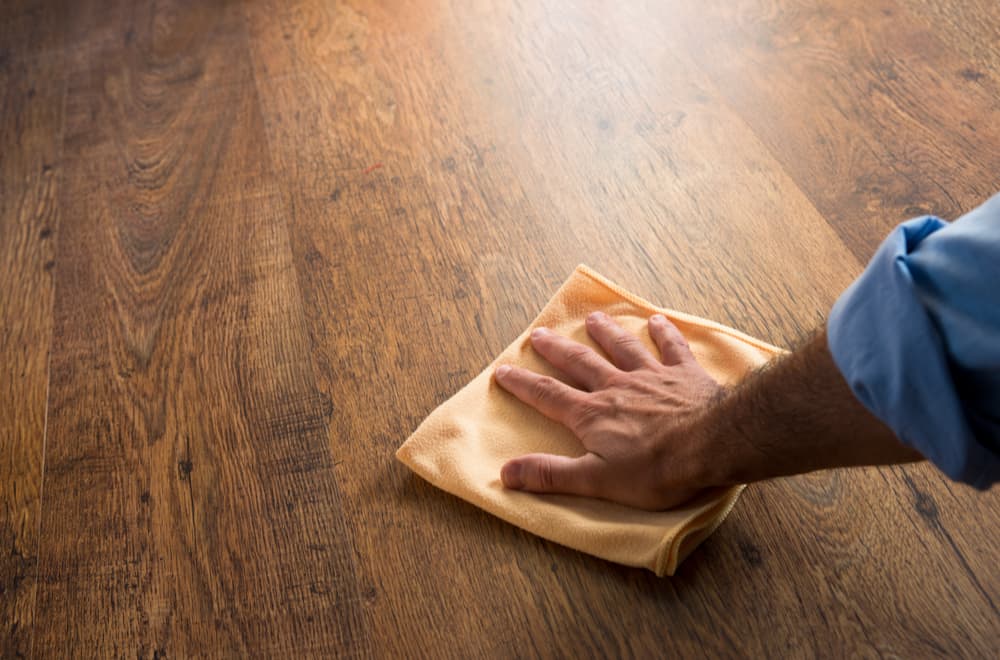Despite the fairly similar look, luxury vinyl planks and hardwoods are fundamentally different. Hardwood is natural, the vinyl planks are manufactured using raw materials, and each of them comes with its own list of pros and cons.
So, when it comes to the ultimate decision, which flooring type should you choose? Luxury vinyl planks or hardwood floorings? In order to end this age-old debate, we’ll compare these two flooring types meticulously in this article. Let’s begin!
Table of Contents
What Is Hardwood Flooring?
Manufactured from timber, hardwood floorings are just wood cut into planks. Originally, hardwood floors were used just for structural purposes, i.e., to support the support beams of a building. However, these days, hardwood planks come in various aesthetically pleasing designs and colors.
When it comes to hardwood flooring, you can either select solid hardwood flooring or engineered hardwood floorings. Solid hardwood planks are simply timbers cut into planks, whereas engineered hardwood consists of multiple layers of wooden plies topped with a veneer of a selected type of wood.
Both solid hardwood and engineered hardwood have similar warmth and texture and look almost identical once installed.
Moreover, while both types of hardwoods are equally durable, the stability of engineered hardwood flooring is comparatively higher due to the added strength gained by cross-layering the plies.
Luxury Vinyl Planks: What Are They?
Luxury vinyl planks are artificial copies of hardwood floors. Each vinyl sheet is manufactured and printed with colors and patterns in a way such that it closely resembles the true wood floorings. No wonder it’s tricky to differentiate vinyl planks from hardwood planks in a quick glance, right?
These synthetic floorings made using a mixture of polyvinyl chloride resins (PVC), calcium carbonate, plasticizers, white pigments, fungicide, and UV stabilizers were first introduced during the 1930s. Since then, they have been giving a neck-to-neck fight to hardwoods when it comes to floorings.
The more evolved vinyl flooring option is LVP flooring, which has multi-ply planks and, thus, is thicker and more rigid than standard vinyl flooring.
Luxury Vinyl Plank Vs. Hardwood Flooring
We’ve already discussed how closely luxury vinyl planks resemble hardwood floorings. But what are the differences that set it apart from the real deal? Or, what advantages do the synthetic ones have over the natural floorings? Let’s dive in deep to find out!
1. Durability
Durability is one of the most common concerns amongst homeowners looking to have their flooring replaced, especially those who have kids or pets.
The good news is both the LVP and hardwood floorings are impressively durable. Hardwoods are naturally hard, and LVPs go through rigorous tests to be proven viable for use on commercial surfaces.
However, there are a few minor differences that you should know before deciding on what flooring is apt for your home.
Printed LVPs, due to an invisible layer of protective top coating, are quite chips and scratch-resistant, making them a perfect choice for pet parents.
However, LVPs are known to tear and dent while moving your furniture around or dropping some heavy objects. Likewise, solid LVPs, unlike printed ones, can collect scratches on them over time.
Hardwoods, on the other hand, while being extremely stable, are prone to chips and scratches. But, if your heart has set on hardwoods, we’d say go for it as you can always have an option of repairing or refinishing your hardwood floorings to make it look like you’ve just installed it.
On the downside, such maintenance can be expensive for you if you’re trying to be as budget-friendly as possible.
2. Moisture resistance
The one criterion where LVPs have the edge over hardwoods is moisture resistance. LVPs are completely resistant to moisture.
On the other hand, hardwoods are not moisture resistant, making them an inappropriate choice for areas of the home prone to moisture. If you spill water on the hardwood planks or if they come in contact with moisture, you must dry mop it as soon as possible.
If the exposure is too big and the moisture damage is extensive, you might need to consult professionals about repairing your flooring in order to prevent mold or other water-induced damage from happening. Due to this reason, the best flooring choice for moisture-prone places is LVPs.
However, if you choose engineered hardwood planks, they can resist moisture to some degree. But truth be told, nothing compares to the efficiency of vinyl planks. So, if you don’t want to worry constantly about spilling water or moisture rotting up your flooring, LVPs are the way to go!
3. Cost
Most of the time, the real deal always costs more in comparison to the man-made version. The same is the case when it comes to floorings. While both LVP and hardwood floorings are good long-term investments, hardwood floorings are relatively expensive.
Moreover, choosing hardwood flooring might also entail an extra installation cost to your flooring budget. Also, make sure you consider the fact that hardwood floorings can be quite demanding, and you might have to do certain treatments or refinish once a few years to maintain its charm.
4. Installation
If you’re looking forward to DIY installing your floorings, LVPs might be a good option for you. Vinyl planks, with proper tools, can be installed very easily.
However, to install them on your own, you need a plain leveled surface, to begin with. If you have tiles underneath, you don’t have to take them out.
You can also choose to install padding underneath your vinyl flooring for an extra layer of insulation. Installing the padding also makes your flooring feel super comfortable. In short, when it comes to installing LVPs, you don’t need to seek an expert’s help.
On the other hand, installing hardwoods are on a whole different level. It requires effort, time, and a lot of technicalities.
However, with proper research and tools, this task isn’t impossible either. One must have a saw to cut the planks into the proper sizes and be knowledgeable enough to consider the expansion and contraction the planks undergo depending upon the room temperature.
Moreover, you must also make sure that you install a sub-floor and vapor barrier beneath before installing hardwoods. If installed improperly, the whole flooring might be rendered useless, and you might have to redo it. So, if you ask us, we’d recommend you take professional help to install hardwood flooring.
5. Cleaning and Maintenance
Maintaining and cleaning LVP flooring is fairly easy. You can wet mop it, broom it, or use a vacuum cleaner. Your vinyl flooring must be cleaned using no-wax cleaners since using such cleaners, over time, might result in wax build-ups on your flooring.
To maintain the shine of your vinyl flooring, you can use vinyl polishes. However, direct exposure to sunlight over time might result in fading of vinyl flooring.
So, if possible, you must prevent the fading of your LVP flooring by using shades or blinds as faded or damaged LVP flooring cannot be repaired and thus, must be replaced.
Maintenance can be daunting for hardwoods flooring. Cleaning isn’t easy either. The one major thing to keep in mind is that wet mopping a hardwood flooring is a big no-no. You can sweep, dust mop, or use a vacuum cleaner to clean your hardwood flooring.
To make sure that your hardwood flooring retains its shine, you might need to wax it once it starts fading. If you notice chipping or scratches on your hardwood flooring, you do have options of repairing or refinishing it.
LVP flooring, without a doubt, is much easy to clean and take care of. Having said that, one must remember that hardwood floorings, if cared for properly, have the capability to last for generations. So, in the long run, hardwood flooring seems to be a better investment.
6. Application
While both the LVP and hardwood are appropriate for domestic as well as commercial floorings, the major application of LVP flooring in buildings is around the areas that are frequently exposed to moisture, such as bathrooms and kitchen floors.
On the other hand, hardwoods, due to their natural warmth and aesthetics, can be used for luxurious areas requiring higher-end finishes.
For your ease, here’s a quick side-by-side comparison of luxury vinyl plank and hardwood flooring.
| Property | Luxury vinyl Plank | Hardwood Flooring |
| Durability | Can tear or dent. Impressively resistant to scratches and chippings. Appropriate for pet owners. | Softer woods can chip, scratch, or dent easily. |
| Water resistance | Yes | Engineered hardwood – Fairly resistant
Solid hardwood – Prone to moisture damage |
| Cost | Relatively cheaper | Expensive and requires additional installation costs. |
| Installation | Very easy | One may need a professional installation. |
| Maintenance and cleaning | Non-wax cleaners are recommended. Wet mopping for deep cleaning. | Broom or vacuum cleaning is recommended. |
| Application | Moisture-prone areas such as bathrooms, kitchen floors. | Beneath heavily furnished places. |
Summary
In conclusion, both the floorings come with their own list of benefits and drawbacks. So, the takeaway is that if you’re looking for a budget-friendly and water-resistant option to give life to your flooring, LVPs are the way to go.
However, if you’re looking for something that lasts for generations and imparts a traditional, warm, and aesthetic vibe to your flooring, nothing compares to hardwood floorings, and it might be the best option for you.
